Contents
Guide

Partiality and Impartiality in African Philosophy
African Philosophy: Critical Perspectives and Global Dialogue
The African Philosophy: Critical Perspectives and Global Dialogue book series aims to promote emerging critical perspectives in different branches of African philosophy. It serves as an avenue for philosophers within and between many African cultures to present new arguments, ask new questions and begin new dialogues within both specialised communities and with the general public. By merging the critical and global dimensions of thoughts pertaining to important topics in African philosophy, this series beams the lights and rigour of philosophical analysis on topical as well as classical questions reflective of the African and African diaspora search for meaning in existence. Focussed on the best of African philosophy, the series will introduce new concepts and new approaches in philosophy both to intellectual communities across Africa, as well as the rest of the world.
Series Editors
Uchenna B. Okeja, Rhodes University; Bruce B. Janz, University of Central Florida
Editorial Board
Anthony Appiah, Valentine Mudimbe, Gail Presbey, Achille Mbembe, Robert Bernasconi, Samuel Imbo, Tsenay Serequeberhan, Thaddeus Metz, Katrin Flikschuh, Niels Weidtmann, Christine Wanjiru Gichure, Kai Kresse, Joseph Agbakoba, Souleymane Bachir Diagne, Dismas. A. Masolo, Pedro Tabensky
Recent Titles in the Series
Partiality and Impartiality in African Philosophy , M. Molefe
Menkitis Moral Man , Oritsegbubemi Anthony Oyowe
Menkiti on Community and Becoming a Person , edited by Edwin Etieyibo and Polycarp Ikuenobe
African Philosophical and Literary Possibilities: Re-reading the Canon, edited by Aretha Phiri
Derrida and Africa: Jacques Derrida as a Figure for African Thought , edited by Grant Farred
Afro-Communitarian Democracy , Bernard Matolino
A Discourse on African Philosophy: A New Perspective on Ubuntu and Transitional Justice in South Africa , Christian B. N. Gade
Disentangling Consciencism : Essays on Kwame Nkrumah's Philosophy , edited by Martin Odei Ajei
Partiality and Impartiality in African Philosophy
M. Molefe
Foreword by Jrg Lschke
LEXINGTON BOOKS
Lanham Boulder New York London
of this book duly benefitted from the anthology edited by Kwasi Wiredu and Kwame Gyekye, Person and Community: Ghanaian Philosophical StudiesI , 1992, pgs. 101122 and 193206, the Council for Research in Values and Philosophy. Reprinted with permission from the Council for Research in Values and Philosophy.
Social Philosophy in Postcolonial Africa: Some Preliminaries Concerning Communalism and Communitarianism. Kwasi Wiredu, South African Journal of Philosophy , copyright 2013 Philosophical Society of Southern Africa, reprinted by permission of Taylor & Francis Ltd, http://www.tandfonline.com, on behalf of Philosophical Society of Southern Africa. DOI: 10.4314/sajpem.v27i4.31522.
An imprint of The Rowman & Littlefield Publishing Group, Inc.
4501 Forbes Boulevard, Suite 200, Lanham, Maryland 20706
www.rowman.com
86-90 Paul Street, London EC2A 4NE
Copyright 2022 by The Rowman & Littlefield Publishing Group, Inc.
All rights reserved. No part of this book may be reproduced in any form or by any electronic or mechanical means, including information storage and retrieval systems, without written permission from the publisher, except by a reviewer who may quote passages in a review.
British Library Cataloguing in Publication Information Available
Library of Congress Cataloging-in-Publication Data
Names: Molefe, Motsamai, author. | Loschke, Jorg, writer of foreword.
Title: Partiality and impartiality in African philosophy / M. Molefe ; foreword by Jorg Loschke.
Other titles: African philosophy (Lanham, Md.)
Description: Lanham : Lexington Books, 2021. | Series: African philosophy: critical perspectives and global dialogue | Includes bibliographical references and index.
Identifiers: LCCN 2021036850 (print) | LCCN 2021036851 (ebook) | ISBN 9781498599436 (cloth) | ISBN 9781498599443 (ebook)
Subjects: LCSH: Philosophy, African. | Fairness. | EthicsAfrica.
Classification: LCC B5305 .M65 2021 (print) | LCC B5305 (ebook) | DDC 179.9dc23
LC record available at https://lccn.loc.gov/2021036850
LC ebook record available at https://lccn.loc.gov/2021036851
 The paper used in this publication meets the minimum requirements of American National Standard for Information SciencesPermanence of Paper for Printed Library Materials, ANSI/NISO Z39.48-1992.
The paper used in this publication meets the minimum requirements of American National Standard for Information SciencesPermanence of Paper for Printed Library Materials, ANSI/NISO Z39.48-1992.
The issue of partiality and impartiality in ethics has occupied analytic moral philosophers for more than four decades. The problem that they have been wrestling with is that people are committed to two different moral intuitions that appear to contradict each other and seem difficult to reconcile. The first intuition is the intuition that the moral point of view is an impartial point of view and that every person has the same moral worth. The second intuition is the intuition that our moral obligations are not the same with regards to all people. While there are certain moral obligations that we owe to everyone, we also have special obligations to our friends, family members, loved ones and other people that we have meaningful relationships with, obligations that we do not owe to any old stranger. And these special obligations also appear to be of the moral kind. How can these two conflicting intuitions be reconciled?
Much has been written about this question. As a result, there have been increasingly sophisticated versions of both consequentialist and deontological theories, theories that originated in Europe. But, of course, philosophy is not a specific European or Western endeavour; it is a human endeavour. When we philosophise, we try to make sense of our common human experience. Thus, we can expect philosophical problems and questions to appear in many different philosophical frameworks, and we can expect the clash of partiality and impartiality to show up in other philosophical approaches, other normative frameworks and other cultural contexts as well.
Motsamai Molefes Partiality and Impartiality in African Philosophy illustrates this in an impressive way. This book is the first comprehensive study that discusses the question of how to reconcile partiality and impartiality from an African perspective. Molefe shows that, while no scholar of African philosophy has addressed this question explicitly, it is nevertheless in the background of much theorising about normative ethics from an African perspective. This alone makes it an important contribution to the literature. But this book is not only important for scholars of African philosophy. It also shows how African concepts such as ubuntu provide us with theoretical resources to develop new approaches to the issue of how to reconcile partiality and impartiality, theoretical resources that can be used by or inspire philosophers from other cultural contexts. This book is an important contribution not only to the literature on African ethics but also to the general literature on partiality in ethics, and it will surely initiate discussions among scholars from many different philosophical fields.

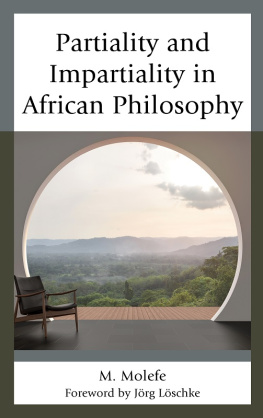
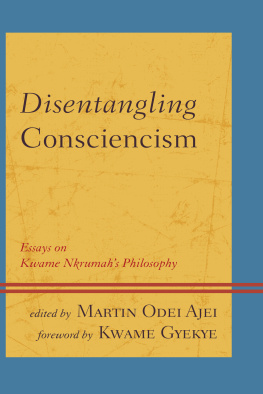
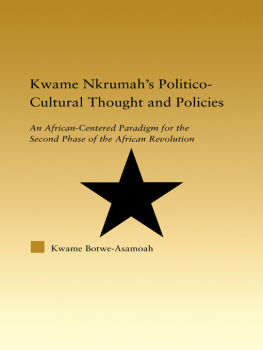
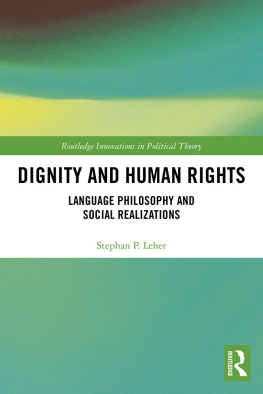

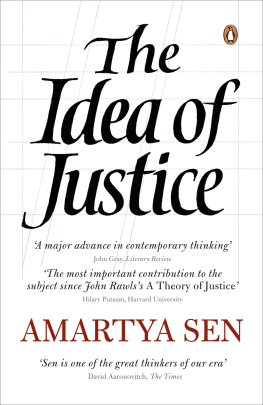
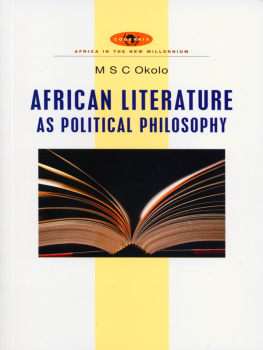

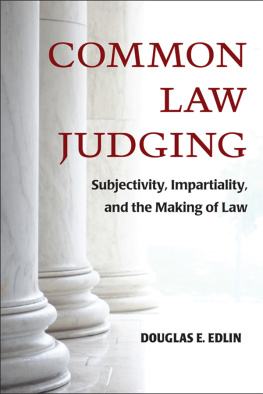
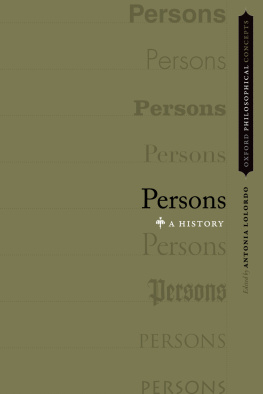
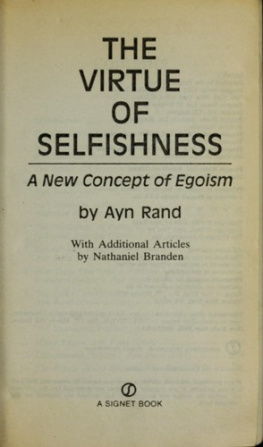

 The paper used in this publication meets the minimum requirements of American National Standard for Information SciencesPermanence of Paper for Printed Library Materials, ANSI/NISO Z39.48-1992.
The paper used in this publication meets the minimum requirements of American National Standard for Information SciencesPermanence of Paper for Printed Library Materials, ANSI/NISO Z39.48-1992.